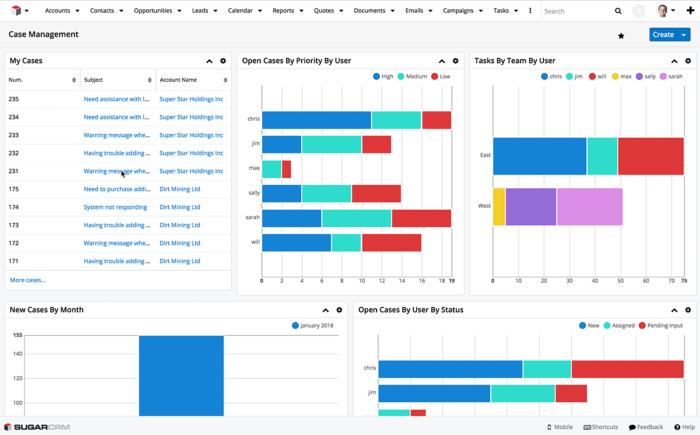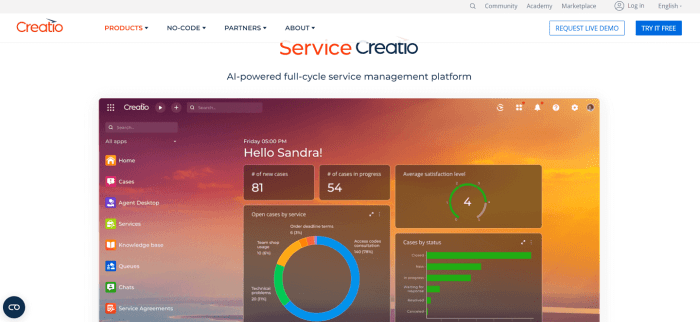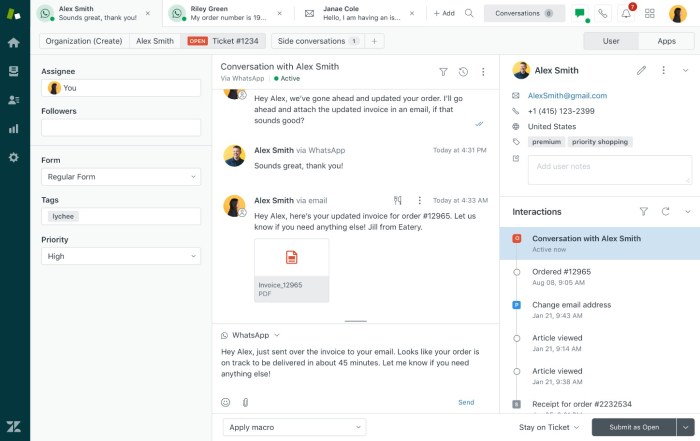Best crm software for customer service – In today’s competitive landscape, delivering exceptional customer service is paramount to success. A robust Customer Relationship Management (CRM) system is no longer a luxury but a necessity for businesses of all sizes. Choosing the right CRM software can significantly improve customer interactions, streamline workflows, and ultimately boost your bottom line. This comprehensive guide explores the best CRM software options for customer service, considering various factors to help you make an informed decision.
Understanding Your Customer Service Needs
Before diving into specific CRM software, it’s crucial to assess your business’s unique needs. Consider the following:

Source: imgix.net
- Team Size: A small business will have different requirements than a large enterprise.
- Budget: CRM software pricing varies widely, from free plans to enterprise-level solutions.
- Industry: Specific industry needs might necessitate specialized features.
- Integration Requirements: Does your business use other software (e.g., marketing automation, e-commerce platforms) that needs to integrate with your CRM?
- Customer Service Channels: Do you primarily interact with customers via email, phone, social media, live chat, or a combination?
- Reporting and Analytics Needs: What key performance indicators (KPIs) are most important to track (e.g., customer satisfaction, resolution time, first contact resolution)?
Top CRM Software for Customer Service
The market offers a plethora of CRM solutions. Here are some of the leading contenders, categorized for easier understanding:
1. Salesforce Service Cloud, Best crm software for customer service
Salesforce Service Cloud is a powerful, feature-rich CRM solution ideal for large enterprises. It offers advanced features like case management, knowledge bases, omnichannel support, and robust analytics. However, it comes with a higher price tag and a steeper learning curve.
- Pros: Extensive features, scalability, strong integrations.
- Cons: High cost, complex interface, requires specialized training.
2. Zendesk
Zendesk is a popular choice for businesses of all sizes, known for its user-friendly interface and robust ticketing system. It offers various plans, making it accessible to businesses with varying budgets. Its strong focus on customer support makes it a great option for customer-centric organizations.
- Pros: User-friendly, scalable, affordable options, strong community support.
- Cons: Some advanced features may require add-ons, reporting could be improved for larger organizations.
3. HubSpot Service Hub
HubSpot Service Hub is part of the broader HubSpot marketing and sales platform. Its strength lies in its seamless integration with other HubSpot tools, providing a holistic view of the customer journey. It’s a good option for businesses already using other HubSpot products.
- Pros: Excellent integration with other HubSpot tools, user-friendly, good value for money.
- Cons: Limited features compared to Salesforce Service Cloud, might be overkill for smaller businesses not using other HubSpot tools.
4. Freshdesk
Freshdesk is a highly customizable and affordable CRM solution known for its flexibility and ease of use. It offers a wide range of features, including ticketing, self-service portals, and automation capabilities. It’s a strong contender for businesses seeking a balance between features and affordability.
- Pros: Affordable, highly customizable, user-friendly interface.
- Cons: Some advanced features might require add-ons, reporting capabilities could be enhanced.
5. Zoho CRM
Zoho CRM is a comprehensive CRM platform offering a wide range of features at a competitive price point. It’s a good option for businesses looking for a versatile and affordable solution with a broad feature set. Its integration capabilities are also quite strong.
- Pros: Affordable, comprehensive features, good integration capabilities.
- Cons: Interface can feel cluttered for some users, customer support could be improved.
Key Features to Look for in a Customer Service CRM
Regardless of the specific CRM you choose, certain key features are essential for effective customer service:
- Ticketing System: Efficiently manage and track customer inquiries.
- Knowledge Base: Provide self-service options for customers to find answers quickly.
- Omnichannel Support: Interact with customers across multiple channels (email, phone, chat, social media).
- Automation: Automate repetitive tasks to free up agent time.
- Reporting and Analytics: Track key metrics to measure performance and identify areas for improvement.
- Customer Segmentation: Group customers based on shared characteristics to personalize interactions.
- Integration Capabilities: Seamlessly integrate with other business tools.
Choosing the Right CRM: A Step-by-Step Approach
- Define your needs: Clearly identify your business requirements and budget.
- Research different CRMs: Explore various options and compare their features and pricing.
- Request demos: Test drive the software to see if it meets your needs.
- Read reviews: See what other users have to say about the software.
- Consider scalability: Choose a CRM that can grow with your business.
- Check for integrations: Ensure compatibility with your existing tools.
- Factor in training and support: Consider the level of support offered by the vendor.
Frequently Asked Questions (FAQ): Best Crm Software For Customer Service
- Q: What is the best CRM for small businesses? A: The best CRM for a small business depends on its specific needs and budget. Zendesk, HubSpot Service Hub, and Freshdesk are all popular and affordable options.
- Q: How much does CRM software cost? A: CRM software pricing varies greatly, from free plans to thousands of dollars per month for enterprise-level solutions.
- Q: What are the benefits of using a CRM for customer service? A: Benefits include improved customer satisfaction, increased efficiency, better communication, and data-driven decision-making.
- Q: How do I choose the right CRM for my business? A: Consider your business needs, budget, team size, and required integrations. Request demos and read reviews before making a decision.
- Q: Can I integrate my CRM with other software? A: Most modern CRMs offer integration capabilities with other business tools, such as marketing automation platforms, e-commerce platforms, and help desk software.
References
Call to Action
Ready to transform your customer service? Explore the CRM options discussed above and choose the one that best fits your business needs. Start improving your customer interactions and boosting your bottom line today!
Query Resolution
What is the average cost of CRM software?
CRM software costs vary widely depending on features, scalability, and vendor. Pricing models range from subscription-based plans with tiered features to enterprise solutions requiring significant upfront investment.
How long does it take to implement a CRM system?
Implementation time depends on the complexity of the system, data migration needs, and the size of the organization. It can range from a few weeks for smaller businesses to several months for larger enterprises.

Source: switchonbusiness.com
What are the key features to look for in a customer service CRM?
Essential features include ticketing systems, live chat integration, knowledge bases, reporting and analytics dashboards, and seamless integration with other business tools.

Source: method.me
Can a CRM system integrate with my existing software?
Many CRMs offer integrations with popular business applications like email marketing platforms, accounting software, and communication tools. It’s crucial to check for compatibility before selecting a system.
